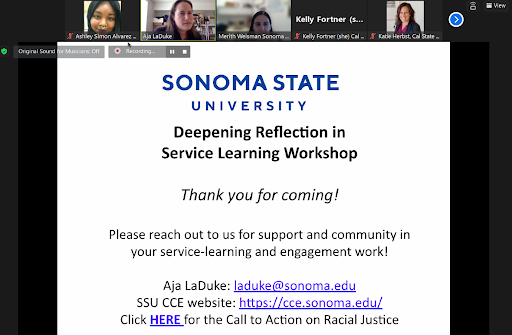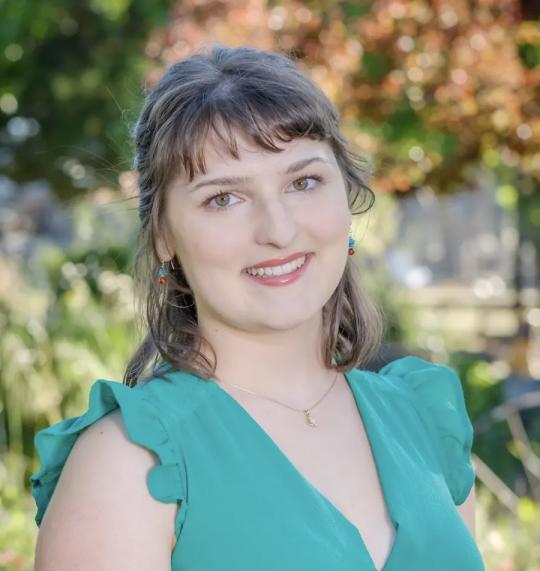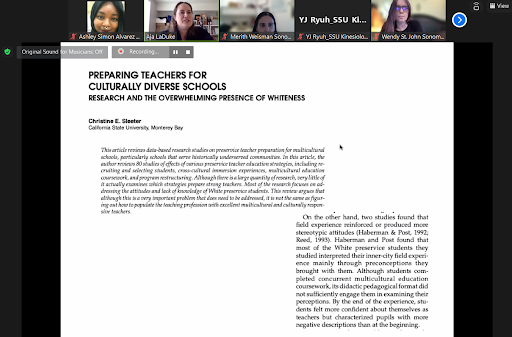Faculty Discuss Reflection in Service-Learning
“We know service-learning works… I know all of you are here because of your belief in this pedagogy and your intention to make this something that is prevalent on all of our campuses and done and done well.” said Dr. Aja LaDuke, in the “Deepening Reflection in Service-Learning” workshop.
The second faculty workshop of the semester, the “deepening reflection in service-learning” workshop, brought faculty from all over the state together to discuss methods of student reflection. Dr. Aja LaDuke, professor of education and Faculty Fellow, facilitated the workshop. Dr. LaDuke shared her knowledge and experience of Multicultural / Anti-Bias Education incorporating it into the pedagogy of service-learning that she teaches. I was fascinated by the concepts she addressed, and so were the other participants.

Dr. LaDuke thanks the participants for coming as the workshop
comes to an end
Something that I never thought twice about as a student, was the thought that professors put behind selecting a reflection method. I have been assigned many types of reflections, but I never knew why. In the meeting, Dr. LaDuke discussed how to make sure students “get beyond the surface” and how the method of reflection plays into that. Many of the participants shared their experiences with reflection – when it worked, and when it didn’t. A good critical analysis method, LaDuke says, is one that works with a wide variety of learning styles. However, not every method is appropriate for every class, because not one class is the same. The challenge of the professor is to choose a reflection method that allows students to learn more from the service experience, “the reflection is the opportunity that faculty have to guide the learning” said Dr. Merith Weisman, Director of the Center for Community Engagement (CCE.)
“How do our goals line up with racial and social justice?” an important question raised by Dr. LaDuke, who led the group into the next portion of the workshop. LaDuke talked about guiding reflection in a way that was constructive for students in relation to racial justice. “thinking about putting our students in various community spaces… and recognizing what they bring into it, their lenses, their worldviews, and hoping for that shift that… they are renegotiating some of those previously held beliefs, particularly negative stereotypes.” said LaDuke, “that guidance… that framing needs to be present in the service-learning pedagogy.” Without intentionality in reflection, “white middle-class students who work with people may have their negative stereotypes confirmed… further, underrepresented students report that the ‘real service’ they are doing is in the classroom, educating their white, middle-class peers.” Dr. LaDuke’s insight and care about social justice in service-learning was appreciated by all who attended the meeting, me included. It is incredible to see educators who never stop learning to create a positive learning experience for us students.

Author: Veda Dean



